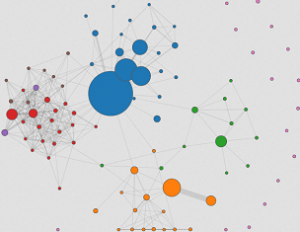
Data on our data is called "metadata." It's there every time we leave an electronic record behind. When we take a photo, it will have data about the camera, the time it was taken, and probably the name of who took it, if geolocation and face detection are enabled on the device. Taking a picture now is much more than just a photo. It's telling information about yourself.
During this year's Media Party, organized by Hacks/Hackers Buenos Aires, Daniel Foguelman from the security company InfoByte, led a workshop on discovering and cleaning your metadata. During the workshop, Foguelman taught journalists how to discover and remove information from PDFs, JPEGs and HTML to avoid leaving information behind unintentionally.
Read the the rest of Blejman’ post on IJNet.
The International Journalists' Network, IJNet, keeps professional and citizen journalists up to date on the latest media innovations, online journalism resources, training opportunities and expert advice. ICFJ produces IJNet in seven languages: Arabic, Chinese, English, Persian, Portuguese, Russian and Spanish. IJNet is supported by donors including the John S. and James L. Knight Foundation.
Image: Screen grab from Immersion.